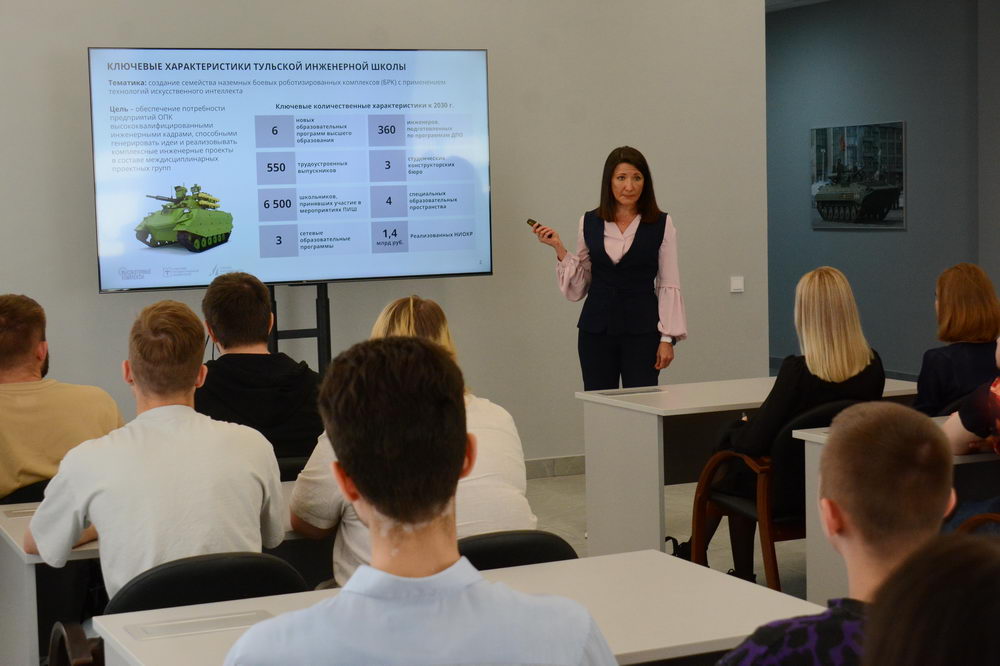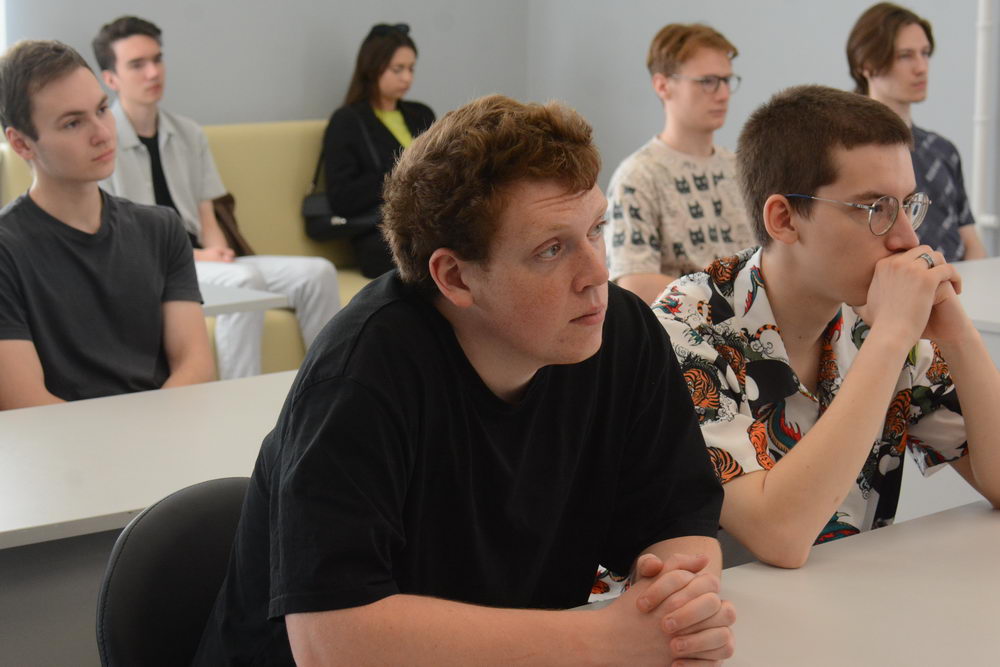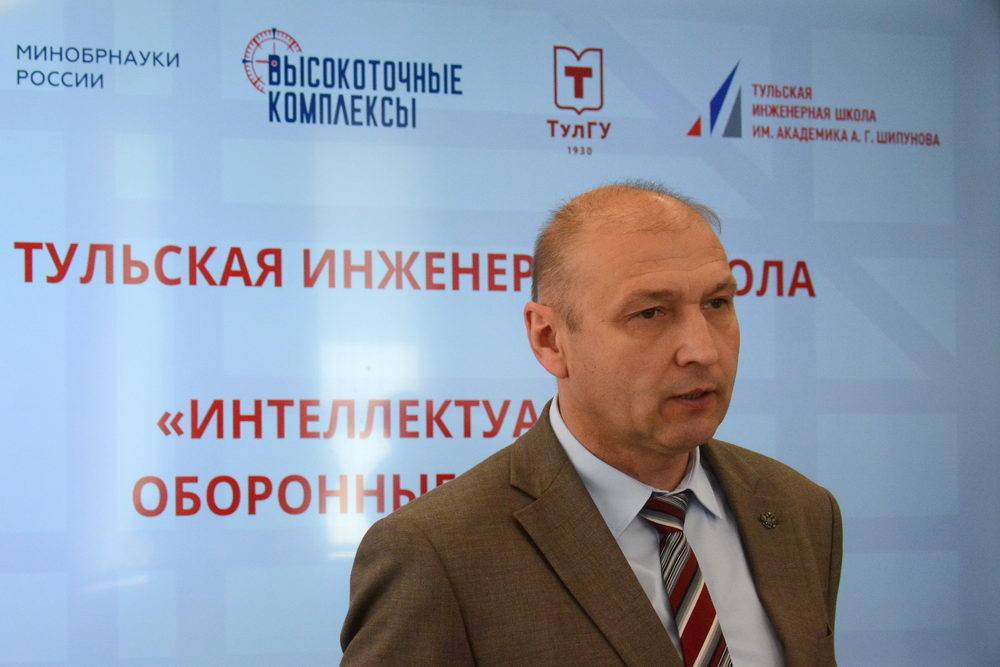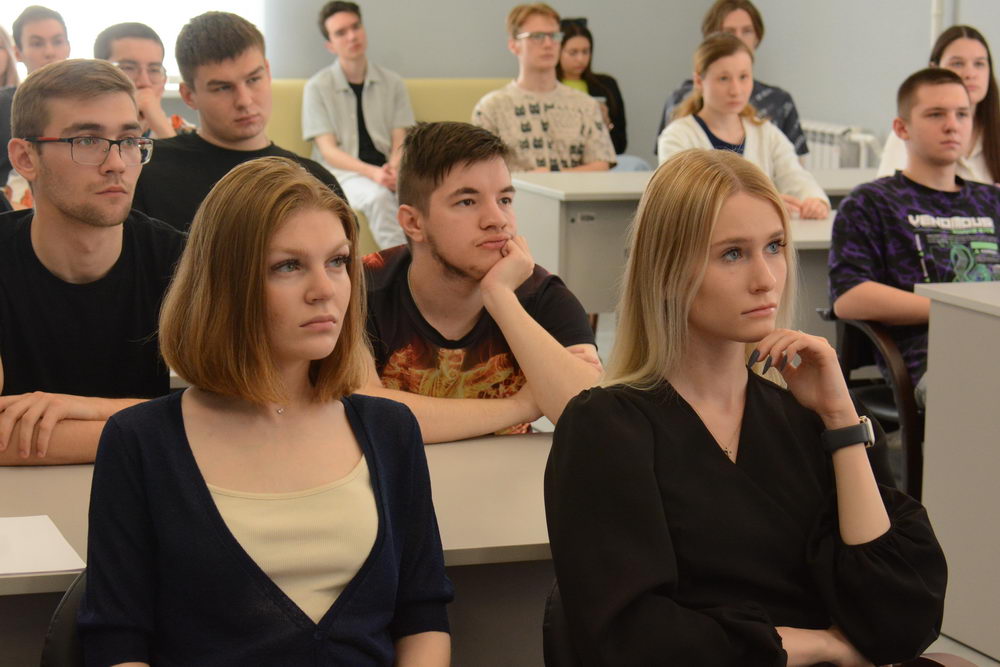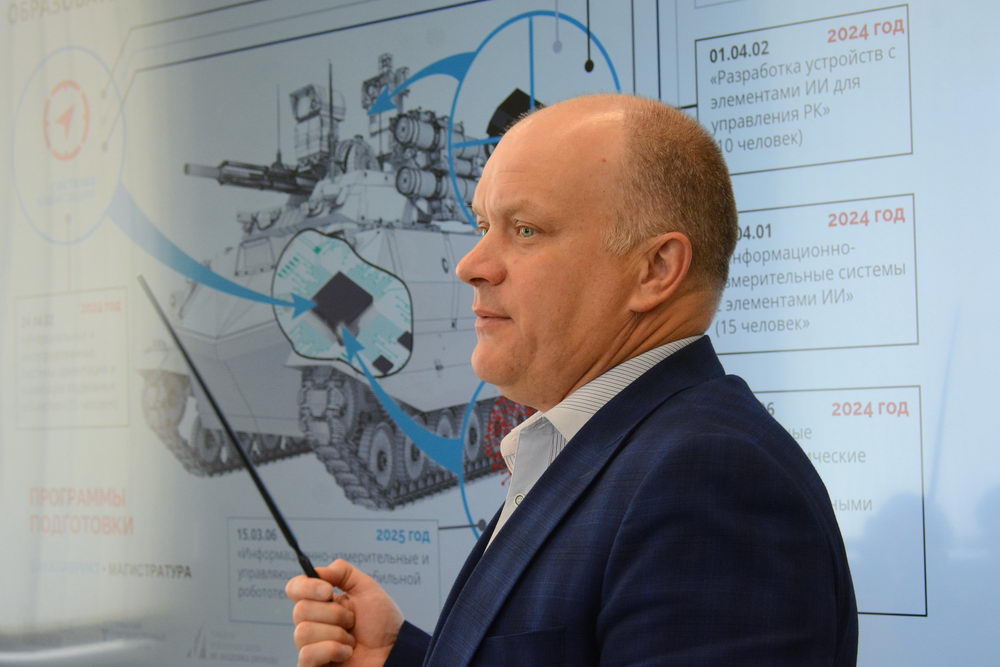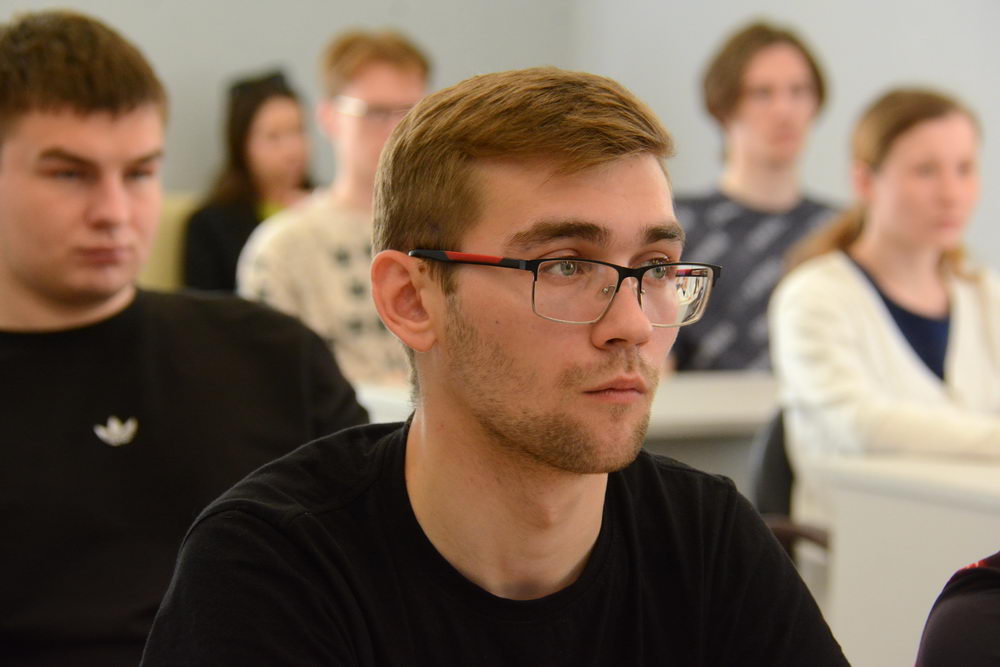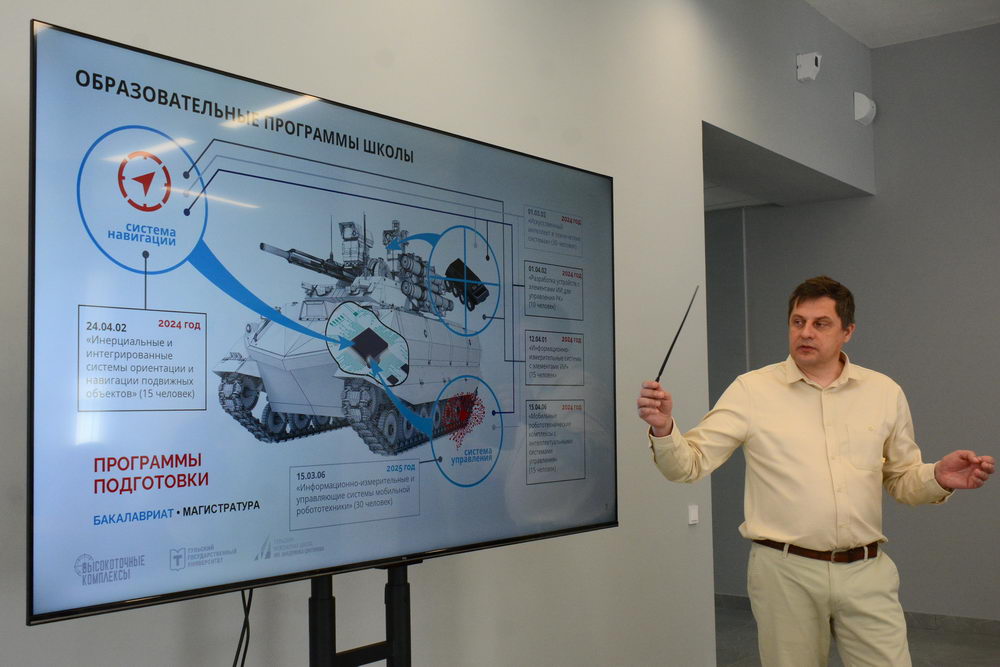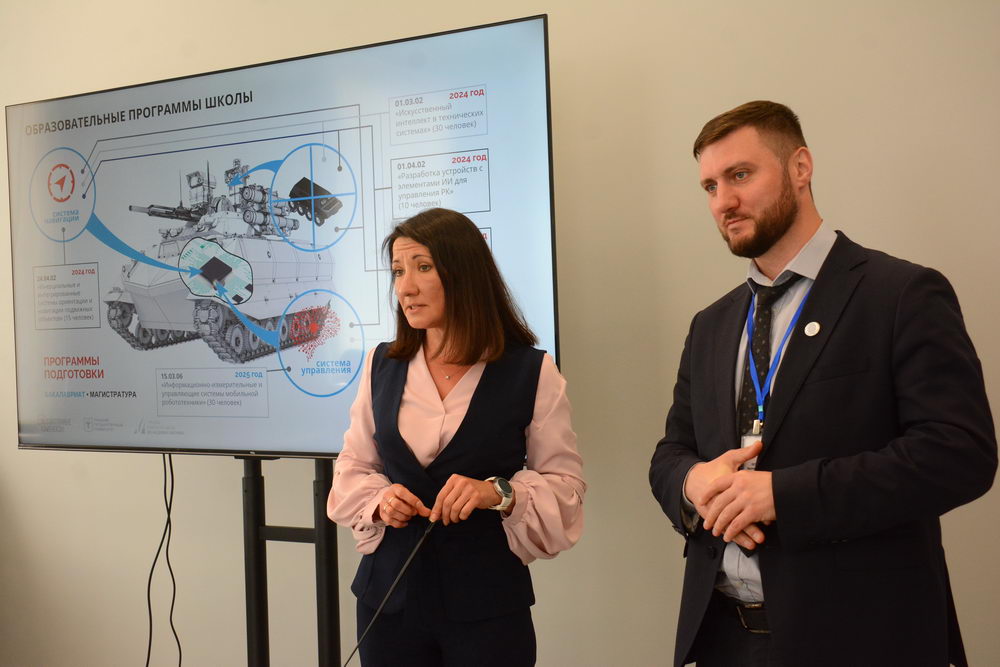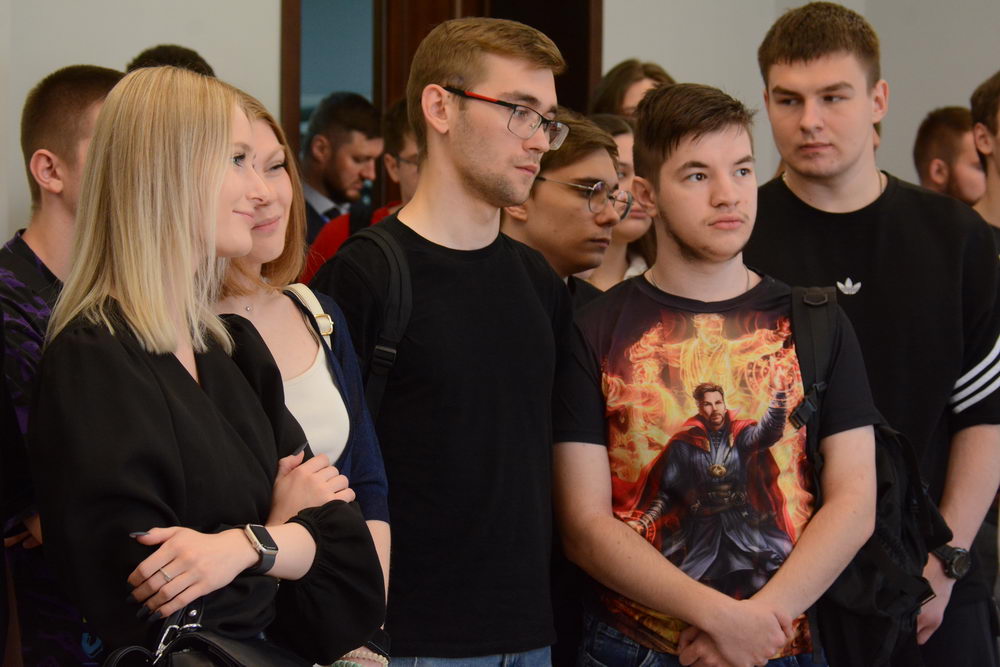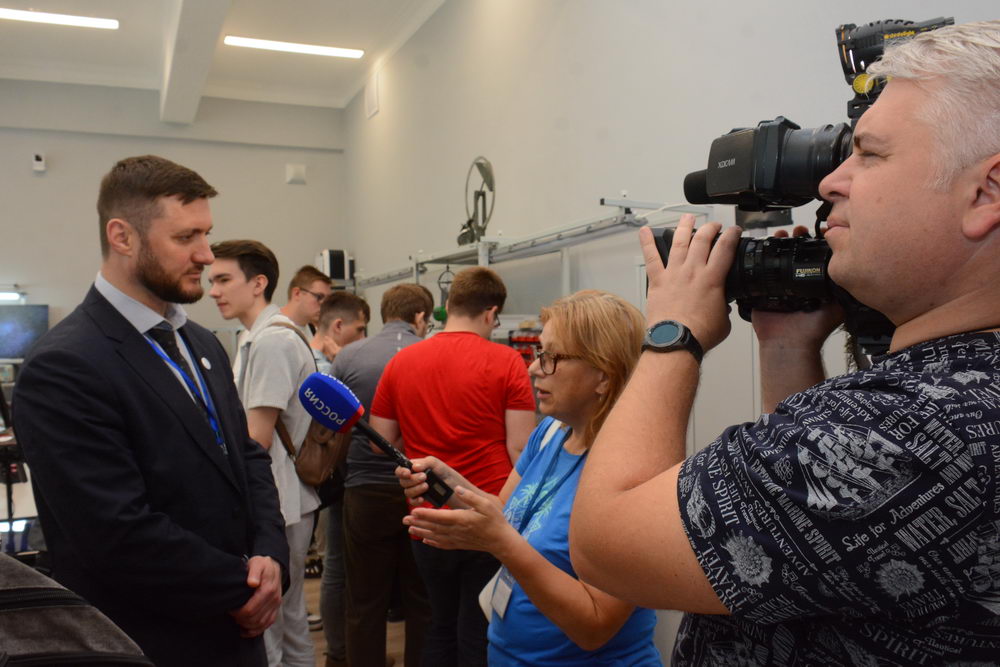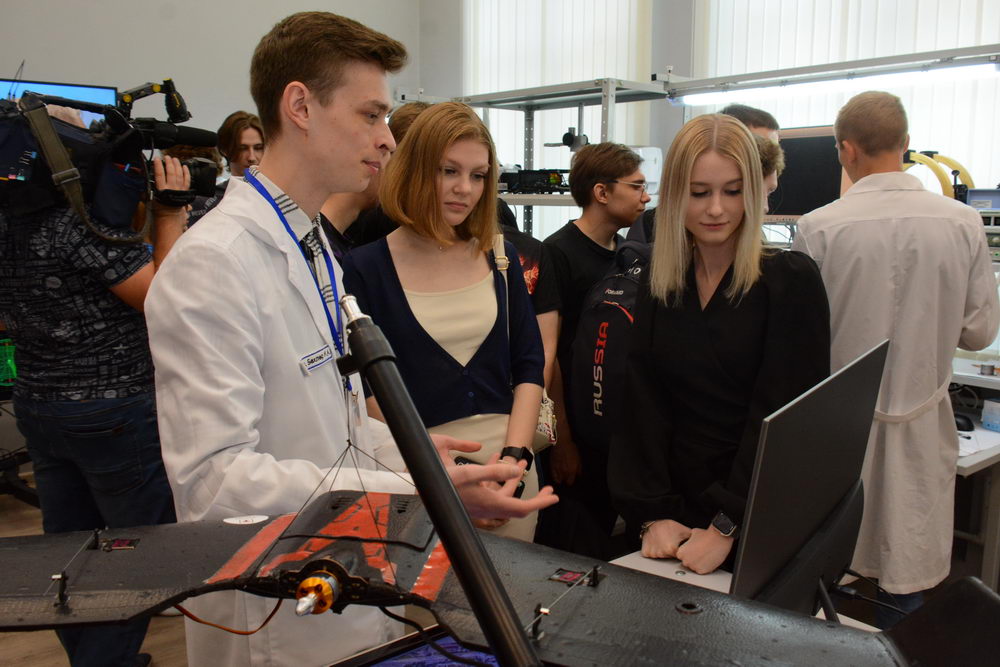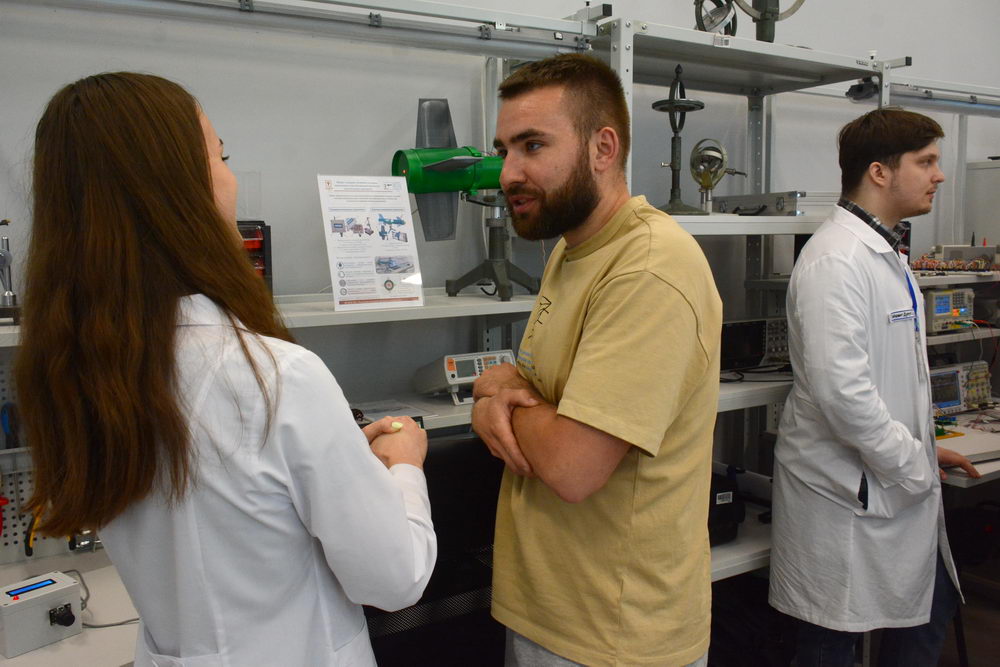- 30.05.2024
Advanced engineering school held an open day
Tula Engineering School “Intellectual defense systems” presented the new educational programmes to be implemented from September 2024 to the graduating class of Bachelor of Science students at an open day.
Tula engineering school aims to create a family of ground robotic complexes (RC) using artificial intelligence technologies. To achieve this goal within the framework of this project, new training programmes have been developed to equip the engineering workforce with the skills required to design such systems.
"Tula School of Engineering is one of the fifty advanced engineering schools opened across the country. The educational process is oriented on the project approach and the integration of training with research and production tasks of enterprises. The school's infrastructure includes several scientific and educational spaces. It is planned to open laboratory module "Experiment", production and technological cluster "Workshop" and testing ground", - emphasised Olga Anatolyevna Fomicheva, Director of the Advanced Engineering School.
Konstantin Usenko, representative of “R&PA RTSS” JSC, 2013 graduate of the Applied Mathematics and Informatics Department: "I have been working in the defence industry for more than 10 years. I went to the interview, I got the job. I guess the main thing is not to be afraid. We have two lines of investigation. I am engaged in algorithm development. The work is multifaceted and includes assessing the efficiency of the battery work, plotting positions for missiles, and plotting routes to local deployments. The best part is the constant interaction with motivated people, technology development and empowerment. It's great that our education is also following new trends and the kids will have the opportunity to get the knowledge required for a modern professional."
The event announced the launch of four new master's and one bachelor's degree programmes that focus on advanced technology development. These lines include such specialist areas as "Artificial Intelligence in Technical Systems", "Development of Devices with AI Elements for RC Control", "Information and Measurement Systems with AI Elements", "Mobile Robotics Complexes with Intelligent Control Systems" and "Artificial Intelligence in Technical Systems". The training process will focus on developing the fields of robotics, artificial intelligence and sensorics. This will equip future professionals with the skills they need to respond quickly to the challenges they face.
The students were also given a tour of the “Intellect” educational and project centre, visited the "Unmanned Aviation Systems" student design bureau, the Inertial sensors of primary information, orientation and navigation systems laboratory and the Digital control systems for complex dynamic objects laboratory.
"Quite excellent master's programmes that have adapted to modern demands. I chose for myself the direction "Development of devices with AI elements for RC control".
It seems to me that artificial intelligence lies behind the development, it is relevant, and also this specialisation combines both mathematics and programming," commented Leonid Brychov, a student at the Institute of Applied Mathematics and Computer Science.
“Today, we had a look at the classrooms where we are to be trained. The entire educational space looks modern. I saw a few programmes I'm unfamiliar with that I'd like to work with. In fact, the conditions for undertaking my own project are in place," stated Alexander Chugunov, a student at the Institute of Applied Mathematics and Computer Science.
Veronika Kaplina
Photographs by Mikhail Gindin


